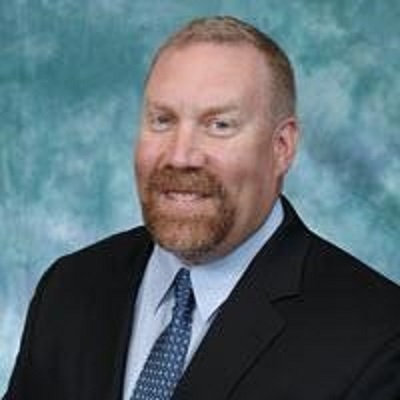With $12.3 Billion in 2021 Revenue, SHI Continues to Grow and Innovate
If you travel down Davidson Avenue in Somerset, you’ll find the global headquarters of SHI International Corp., a hardware, software and IT solutions provider.
The company’s origins date back to “Software House” — the $1 million reseller acquired by Thai Lee and Koguan Leo in 1989. To say the company has grown since then is an understatement.
In 2021, SHI, which is a privately owned company, brought in $12.3 billion in revenue, growing 10% over 2020’s revenues. The company’s momentum was particularly strong in the second half of the year (up 14% over the second half of 2020), and it continued into January, SHI said in a press release.
Recently, SHI changed its branding, introducing a new logo and repositioning itself to make customers aware of the broad swath of offerings it provides. The company has about 2,000 employees in New Jersey, at both its headquarters and its integration centers. SHI employs more than 5,000 people worldwide.
In 2021, the company hired more than 500 solution engineers and continued to invest in its Stratascale (Austin, Texas) division, which provides business transformation through consulting services. The company launched Stratascale in November 2020.
NJTechWeekly.com spoke with Ed McNamara, director of communications and marketing at SHI, about some new directions the company is taking and how it thrived during the pandemic. Our conversation starts here:
ES: SHI came back like gangbusters during the pandemic. How did you manage this?
EM: I think the most important thing was that we were mostly prepared internally. There was a good bit of planning and a good bit of good fortune. We have two warehouses / integration centers, Ridge and Knox, named after the streets they reside on in Piscataway. The Knox one had been opened for years and the Ridge one came online in 2019. As you know, for the first four or five months of the shutdown there was an increased need for hardware sales, so having that increased capacity benefited us, so we could help our customers as they moved their people to remote locations.
We flipped the switch for our own employees in March of 2020. We were very much an in-office company, whether we are working here in Somerset or its down in Austin, Texas, or in Milton Keynes, in the U.K., our top three office locations. We believed in that model for collaboration and training and several other reasons. We went from being an in-office company to a work-from-home company over the course of a weekend. Between Friday and Monday, 94 percent of our employees went from in-office work to remote work.
We were prepared because, about 18 months before this, a couple of bad winter storms had knocked out our New Jersey office’s ability to be there for our customers. Thai Lee, our CEO, decided that we couldn’t tolerate the office disruption, and she decided that everyone would have the ability to work remotely at a moment’s notice. Everyone was equipped with laptops and mobile devices to be able to support remote work. During the shutdown, we just had to make some adjustments on the IT side to scale up in terms of our virtual private network to handle a greater capacity over a longer period of time.
The 6 percent of our employees who could not work remotely should not be overlooked. They were in our integration center and were warehouse employees. They did a massive amount of work, sometimes working double shifts to accommodate all of the IT needs of our customers. They were what kept our customers going through the lockdowns. Our customers all over the world were part of that.
ES: What were your most in-demand items during the various stages of the pandemic?
EM: Laptops, monitors, docking stations, you know, anything that you would see if you looked around that you would need to create a remote office.
The logistics was the hard part, and where we could make the most impact. For example, a financial company with 1,000 employees in New York used to have everything shipped to their New York address. With the lockdown, suddenly these items had to be shipped out to individual employees. You might ask, “Does that make a difference?” And it really does. Shipping pallets of equipment is very different than shipping individual monitors. We were able to do very well with this because we were able to meet our customers’ needs.
ES: What do you think is the main reason SHI has been so successful?
EM: At SHI we always point back to our very loyal customers. We have customers who have been with us for years and decades. It’s not always the case. We do get new customers coming on board. But our long-term customer IT needs have increased, and as our relationship evolves with these customers, we continuously refine what is available to them. When we opened our Ridge facility, it was in response to new opportunities. Customers who might have just been coming to us for Microsoft Volume Licensing now are using us for rack and stack, configurations, and delivery, for example. Also, we are expanding now on an international level in a way we haven’t done before. That has helped us find new customers, and was one of the reasons for the rebrand.
ES: What were some of the other reasons behind the rebrand?
EM: The rebrand was not just about finding new customers, but also about getting existing customers who have known SHI for 20 years to recognize that what they knew about SHI 20 years ago is not necessarily what SHI is now. And we really wanted to invite people to take the opportunity to really look at us in a new light, which just so happens is our marketing tag line. And we had our third logo for 20 years or so. We are now on our fourth logo and we are saying, “Hey, if you’ve known us for a very long time, we invite you to take a look at us and see what’s different.” It’s not just the brand, it’s the offering.
Also, in 2020, SHI established Stratascale, located in Austin, Texas, which brings a consultancy-first approach to helping organizations rapidly adapt in response to business changes and challenges through technology innovation. We call this “digital agility.” As a wholly owned subsidiary of SHI, Stratascale’s researchers, technical advisors, consultants and field service professionals integrate with SHI’s procurement, implementation and managed-services capabilities, giving customers access to an integrated end-to-end partner for their business transformation journey.
ES: What is SHI’s relationship to New Jersey?
EM: Our headquarters is here and we are staying here. We are also expanding outside of New Jersey. We have about 1,300 employees in Austin, at Stratascale. You know, 2022 is our 14th year in Austin. We’ve been in the U.K. for 20 years, and we continue to expand in the U.K., and we are putting an integration center there. We will also be expanding on mainland Europe, and will be creating an integration center there, as well. We need to continue to support the integration needs for our hardware and software customers, both in Europe and in the U.K., in particular. We will need to put the employees close to the customers.
ES: Is SHI back to the office in its locations?
EM: New Jersey is back two days a week, and we just started coming back in. In Austin, as well, it’s also generally two days a week. We think that for a very long time going forward there will be a hybrid model — sometimes at home, sometimes in the office. We still think that there is a big benefit to our employee base in terms of collaboration among teams, learning and training of all employees, but especially training of employees that are recently onboarded. And we’ve always felt that there was a lot of energy and enthusiasm and positive learning opportunities for people to be in the office. So, being back two days a week feels right.




